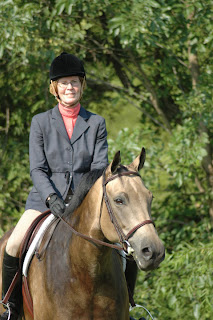I’m asking some of the people you might encounter on the UMBC campus, including students, faculty, staff and alumni, to answer a few questions about themselves and their experiences. These are their responses.
Hometown:I don't have one. My Dad was career Army.
Q: How long have you been at UMBC?
A: This is my 19th year.
Q: What is your current title (job or student organization position)?
A: Assistant Vice Provost for Undergraduate Education.
Q: In 12 words or less, what role(s) do you play on campus?
A: Assistant Vice Provost for Undergraduate Education.
Q: In 12 words or less, what role(s) do you play on campus?
A: Working with colleagues, I develop programs and opportunities that support student success in the transition to college.
Q: What aspect of your UMBC role(s) do you enjoy most?
A: My work requires that I work closely with students, faculty, and staff on a broad range of initiatives. I love the variety of people with whom I work and also the variety of tasks with which I am blessed to be involved.
Q: What is the most important or memorable thing you learned in college/have learned at UMBC?
A: In college, I learned that often our perceptions are not accurate. One has to be careful about making judgments without having all of the information, and that the information on which you base your decision should be information you gather. Just because someone you know has an experience, that may or may not be a good one, does not mean your experience will be the same. Give people and opportunities a chance, try them yourself, get out of your comfort zone because, if you don't, you can't possibly know what you are missing or make a meaningful contribution that can help to improve something.
Q: Complete this sentence: "I am a big fan of __________"
A: Horses and riding.
Q: Do you have any UMBC stories, little-known facts about UMBC, favorite spots on campus, or anything else you’d like to share?
A: Years ago we were sitting at a table celebrating a staff member's retirement. I think the assumption by some of the students who had worked with her was that she did not go to college. Well...she did. She attended a local private college and graduated with a degree in History. When she shared this and most of the students jaws dropped to the ground (perhaps an example of a perception based on an assumption) she said..."Yes, I went to college when the goal of an education was to learn how to learn, not just to get a job. The tools I developed during my years in college have served me well in a variety of positions....they are transferable skills and I learned how to access and apply them." This is something I have never forgotten.






